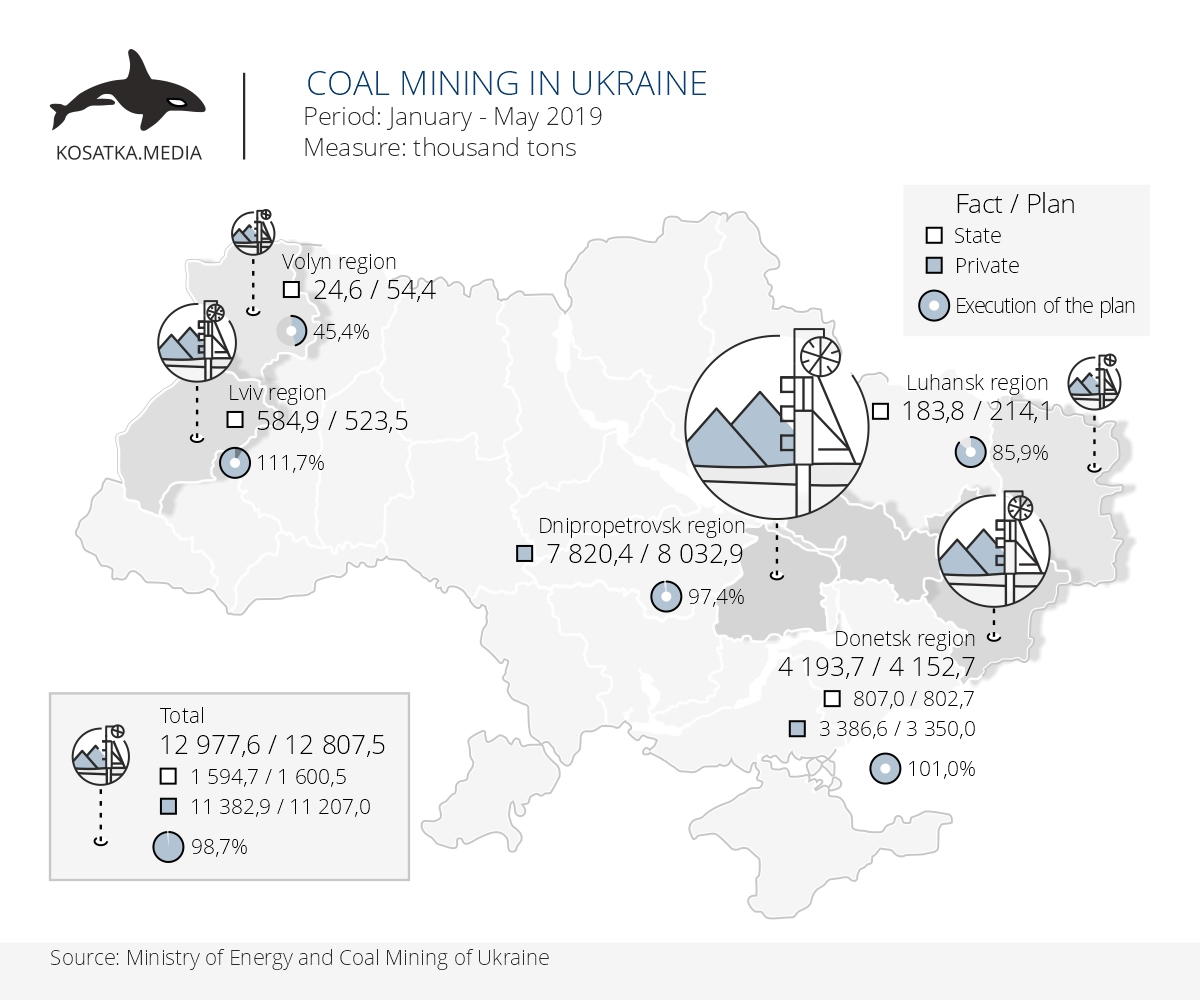Ukraine’s National Anti-Corruption Bureau (NABU) detectives detained the Deputy Minister of Energy on Monday, Aug. 12, for allegedly accepting a bribe of half a million dollars, NABU's press service said.
“According to the investigation, the official, in collusion with the head of one of the state-owned coal enterprises from the east and two other persons, asked the head of another coal enterprise located in the western region to provide an illegal payment amounting to $500,000,” NABU said.
JOIN US ON TELEGRAM
Follow our coverage of the war on the @Kyivpost_official.
“In return, he promised to ensure the transfer of valuable coal mining equipment from one state-owned enterprise to another for storage, with the possibility of using it. In reality, it was about rescuing this equipment, as it was located near the war zone,” the report
As it soon became clear, the detained official was Oleksander Heilo, who was responsible for the coal sector in the ministry, the Cabinet of Ministers dismissed him.
Heilo was arrested just as the bribe was changing hands. Footage of the cash spread out on a table was published by detectives from the anti-corruption bodies.

10,000 Destroyed Since They Invaded: Is Russia Running Out of Tanks?
Equipment in Frontline Mines
The Ministry of Energy hasn’t commented on the case. Sources from the office told Kyiv Post the situation was known about on Saturday. It was said that Heilo demanded a bribe from the heads of a state-owned coal mine located in the Volyn region, in western Ukraine, in exchange for permission to recover mining equipment from a frontline mine in the Pokrovsk district of the Donbas.
Ukraine has two major coal basins where mining takes place, located in opposite regions of the country. One is in the western Lviv and Volyn regions and the other is in the Donetsk and Luhansk regions. The latter areas have been within the war zone for over ten years following the 2014 illegal annexation by Russia.
The equipment would have to be recovered from mines located less than 20 kilometers (12 miles) from the front line according to a map produced by the DeepState social media site.
The approval by the Deputy Minister was urgently needed to allow the recovery to take place.
“In other words, he simply demanded a bribe for something that should have been done anyway. The equipment had been updated some time ago, but for any action involving it, since both the mine being evacuated and the one receiving the evacuated equipment are state-owned, the Deputy Minister’s signature was required,” investigative journalist Yuri Nikolov told Kyiv Post.
As the front is drawing closer to the mine, receiving the necessary formal authorization is becoming critical.
“I do not rule out that one of the defendants in the case was a ‘torpedo,’ who someone set him up,” a source in law enforcement told Kyiv Post.
An employee of the Ministry of Energy said that the need for such permits is not surprising, as the industry remains highly over-regulated.
“Take, for example, the private company DTEK, which also operates mines in Ukraine. They don’t need to obtain such permits. If they decide to move something, they do it quickly on their own. State-owned mines are bureaucratized, inefficient, and frankly in decline. They weren’t doing well even before 2022,” another source said.
Who Is Heilo?
Oleksandr Heilo became the only Deputy Minister in September 2023. From December 2022 until his appointment, he headed the state enterprise Ukrvugillia.
Between 2013 and 2022, Heilo held senior positions in Ukraine’s coal industry. However, anti-corruption investigators discovered a pro-Russian connection.
According to journalist Martyna Boguslavets, in the fall of 2014, after Russia annexed Crimea, Heilo became a co-owner of the company “Fest Trade,” which is registered in occupied Crimea.
The journalist published the conclusion of the Public Integrity Council, the body overseeing Ukraine’s judiciary, which indicated that Heilo (the husband of a judge in the Donetsk regional court) sympathized with the Berkut special police unit during the killings of peaceful protesters on the Maidan as part of Ukraine’s Revolution of Dignity. He also reposted material on social media claiming “Ukraine does not exist and never did.”
Legacy of the Coal Industry
The Heilo case has once again highlighted the difficulties facing country’s coal industry, which is in decline due to the exhausted capabilities of many mines in the Donbas, Russia’s war against Ukraine, and the lack of a consolidated solution to decades-old mining problems. The coal industry has long been plagued by unprofitable mines, schemes involving the sale of coal at a discount, and the purchase of coal from so-called “kopanky” illegal mines.
Another criminal case against a former Deputy Minister, Maksym Nemchynov, is also noteworthy. According to NABU, Nemchynov and the then-leadership of a state-owned coal company sold coal during the critical winter of 2022-2023 to private companies, and at a discount, which led to a coal shortage amid Russian missile strikes.
Kyiv Post sources said that the Heilo case may finally persuade the authorities’ of the need to reform the public sector of the coal industry. The Supreme Anti-Corruption Court is expected to choose a measure of restraint for Heilo soon.
He has been charged under Part 4 of Article 368 of the Criminal Code of Ukraine (receiving illegal benefits by a person in a responsible position for the benefit of third parties on a particularly large scale). If found guilty, Heilo faces between five to ten years in prison.
You can also highlight the text and press Ctrl + Enter
















